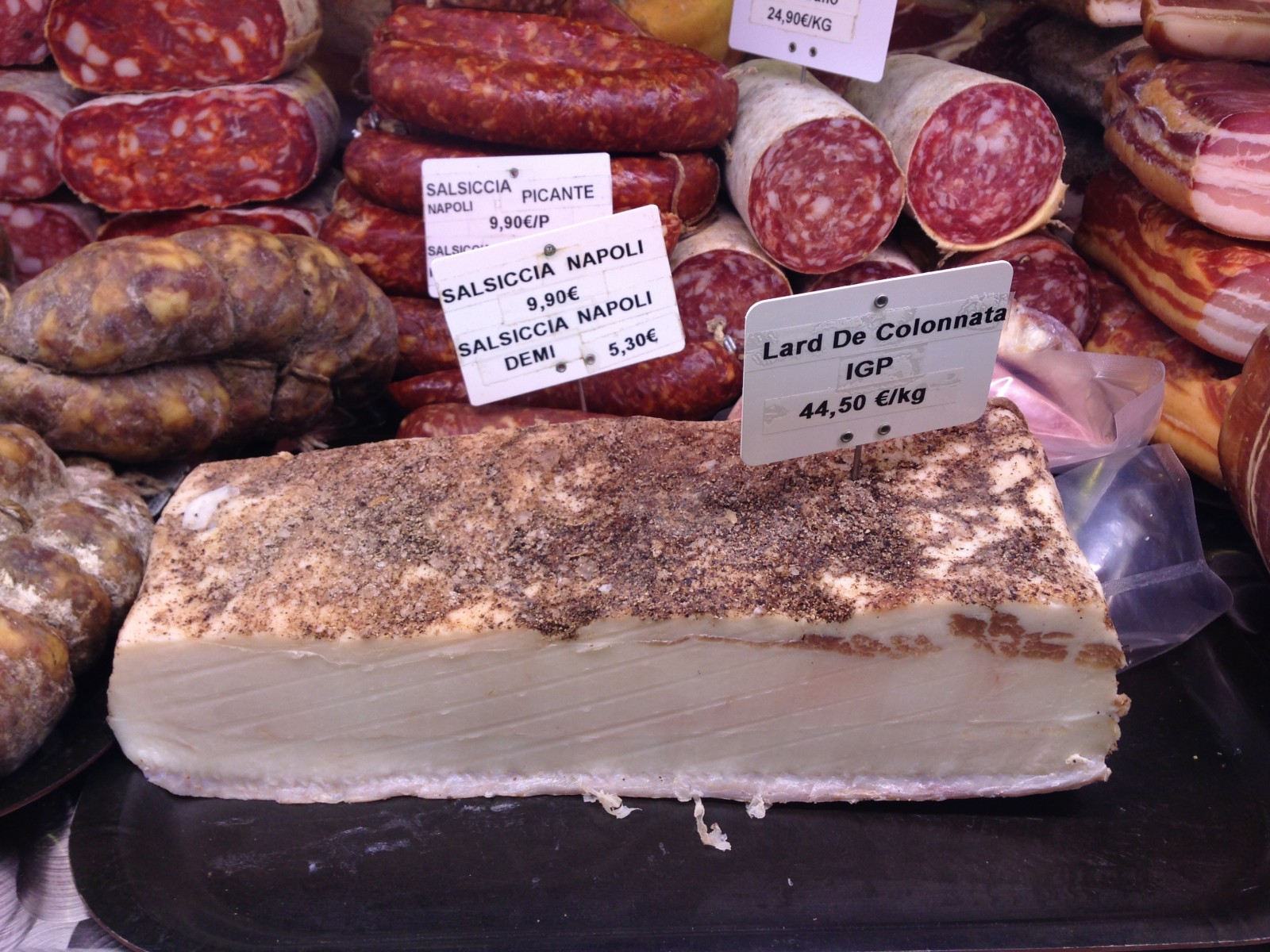
The consumption of Lardo di Colonnata has since antiquity been connected to the extrusion of Carrara marble in the Apuan Alps in northern Tuscany. Its name may be derived from a colony of slaves employed in the marble quarries in Roman times, and the need to provide them with cheap food that was high in calories. This specific context has led to the practise of conserving pork fat in big marble chests filled with brine. Some claim that the knowledge to conserve meats and lard especially, played a key role in Roman dominance over much of Europe. As it was written down in Roman law each soldier had the right to a portion of fat every three days as part of their rations. Well-fed soldiers have more endurance and as the Roman empire continued to expand so did its need for fat to fuel those ambitions.
Despite its humble origins, today Lardo di Colonnata is a rather expensive delicacy.